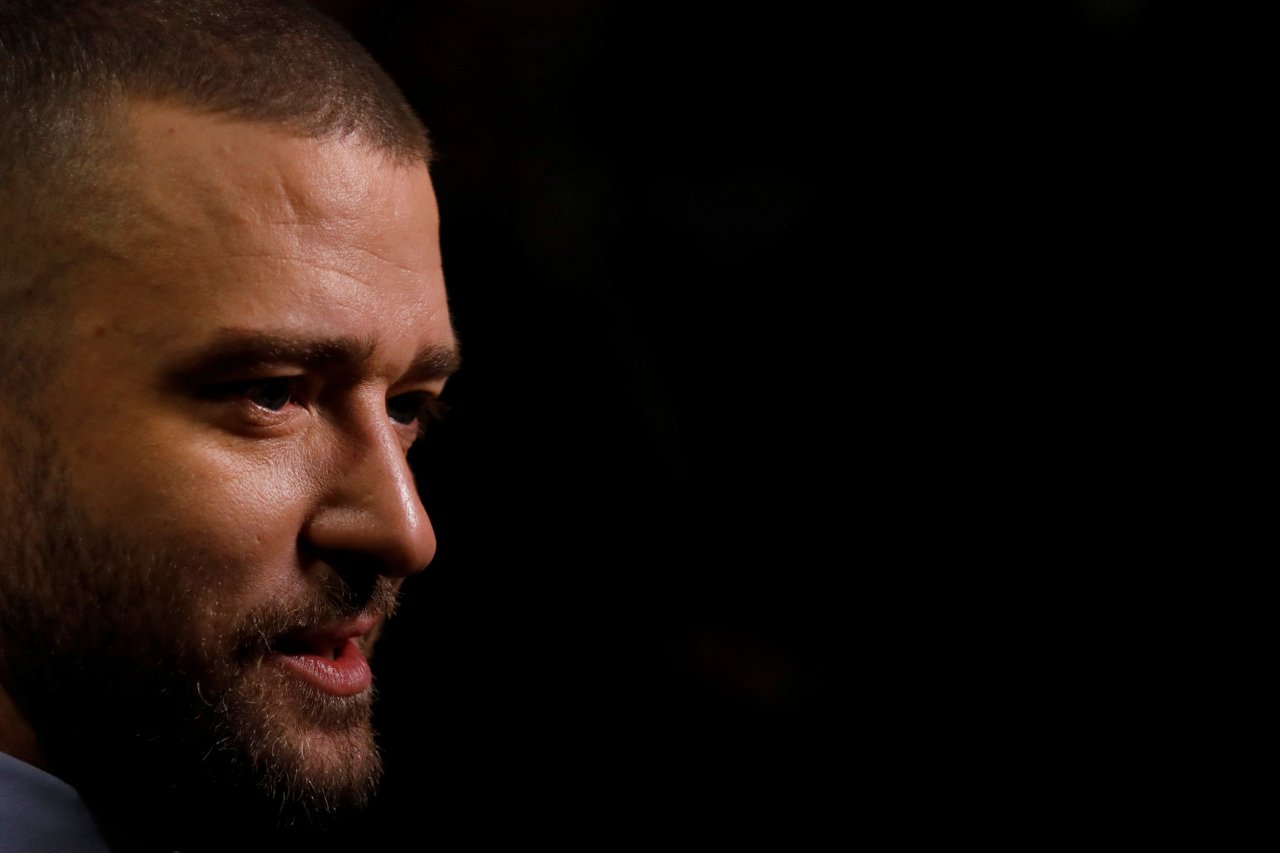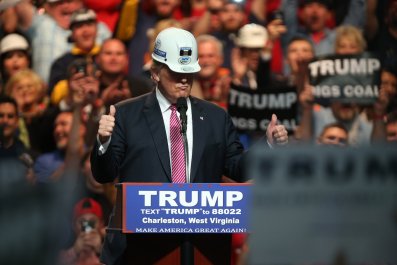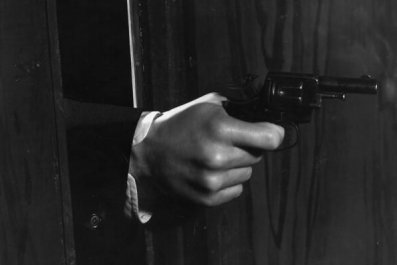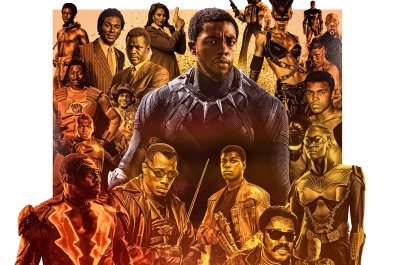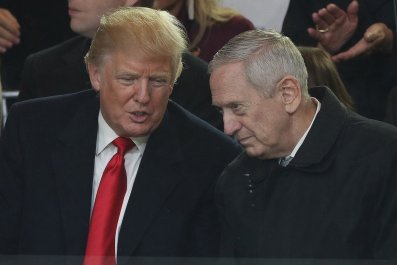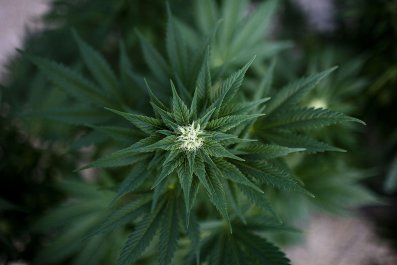In 2013, Justin Timberlake released a party anthem with a less-than-party-like title.
"Take Back the Night," the first single from the pop star's fourth solo album, boasts a sleek disco groove and prime Michael Jackson horns, but the song's musical assets were dampened by its name. Take Back the Night, as anybody with a cursory knowledge of feminist politics might know, is the name of a nonprofit foundation aimed at fighting sexual violence. It is not a party slogan. Everybody knows that. Doesn't everyone know that? Justin Timberlake did not know that.
The news cycle moved fast: Bloggers dunked on Timberlake for his apparent ignorance, Take Back the Night lawyered up and issued a strongly worded statement criticizing the song ("the lyrics are definitely very sexual and not at all clearly anti-sexual violence"), Timberlake apologized, the organization backed down from a lawsuit and everybody had a drink and moved on. Two months later, the pop star released the worst album of his career—a dull, endless burp titled The 20/20 Experience–2 of 2. Despite a critical drubbing, it became a No. 1 Billboard album.
That was nearly five years ago. But in retrospect, the incident seems to have foreshadowed the sour tone of the Timberlake album rollout we've been suffering through for the past month.
The "Take Back the Night" affair was an innocent misunderstanding. Lately, Timberlake's entire music career feels like an innocent misunderstanding. Since the beginning of January, the 37-year-old boy band alum has been getting a daily dunking by the Entertainment Blogging Industrial Complex: for frolicking with horses in his rootsy album trailer, for pledging support for women while also working with Woody Allen, for daring to throw a post–Super Bowl party at Prince's Paisley Park estate, for dropping an album tracklist that reads like a camping site inventory.
A little more than a decade ago, Timberlake was the reigning prince of the pop world. FutureSex/LoveSounds spawned three No. 1 singles, prompted more Thriller comparisons than is legally advisable—and even drew the feverish approval of the indie-rock crowd. When did the media turn against Timberlake?
The current JT news cycle began in earnest on January 2, when Timberlake announced a new album called Man of the Woods. In headlines since then, he's often depicted as mockable or out of touch, or simply not woke enough for 2018. Here's a small sampling:
- "Justin Timberlake Is Officially Uncool Now"
- "Justin Timberlake Is Rebranding As a White Man"
- "Remember When Justin Timberlake Was Good?"
- "Justin Timberlake Is Widely Mocked After Unveiling New Album: 'Listens to Bon Iver Once'"
- "Justin Timberlake Gets Roasted for Man of the Woods Tracklist"
- "Dylan Farrow Drags Justin Timberlake For Hypocritical Support Of Time's Up
- "Rose McGowan Slams Justin Timberlake for Doing Woody Allen Movie"
- "Justin Timberlake's Fake-Wokeness And Lack Of Accountability Won't Fly in 2018"
- "Prince-Mocking White Guy Justin Timberlake to Hold Paisley Park Event"
- "Would Prince Approve of Justin Timberlake and a Credit Card Company Hosting This Party at Paisley Park?"
The ongoing Timberlake backlash seems to fit into four basic categories:
1. The rootsy-album vibe is goofy and much too easy to parody.
As its title suggests, Man of the Woods is about...well, woods. Or Southern roots, or something. The album trailer looks like a montage of leftover landscape shots from Into the Wild: horses, grassy expanse, campfires, Timberlake wading in a river. "It feels like mountains trees, campfires," an unidentified voice narrates. "Like Wild West, but now." Timberlake's earnest insistence on the album's authenticity—it's inspired by "where I'm from," he says in voiceover—has only made it seem more inauthentic. (Consider the first single "Filthy," in which the singer repeatedly insists: "Haters gonna say it's fake / So real.") Producer Danja has described this vibe as being more fashion aesthetic than musical direction: "I remember walking into the studio, and I'm like, 'So, what's the vibe?' He just raised his hands up like, 'This is the vibe.' And what he had on was a flannel, some Adidas, some jeans."
The pivot to earthy-wilderness faux-profundity recalls Miley Cyrus's recent country-pop effort Younger Now, and it has prompted charges that Timberlake is marketing himself to a whiter and more rural audience than the one that adored Justified and FutureSex/LoveSounds. "Authenticity is quite marketable now," The Outline's Ann-Derrick Gaillot noted last month, "and for white pop stars that means shifting away from the hip-hop and R&B-influenced sounds that made them famous, and toward the sounds of Southern and country rock."
The freshly rebranded Timberlake drew a typical round of memes and jokes, and then came the tracklist, seemingly tailor-made for another round of roasting. Many of the song titles—"Flannel," "Montana," "Livin' Off the Land," "Midnight Summer Jam"—sounded like themes for an Urban Outfitters brand of leisurewear.
2. The new songs just aren't very good.
Timberlake set us up to expect twang and pedal steel. Then he dropped "Filthy," a fairly decent slab of electro-funk that is undermined by goofy boasts like, "No, this ain't the clean version!" Maybe not, but it isn't actually filthy, either, because this is Justin Timberlake, not Miguel. In Wikipedia parlance, this song received mixed reviews. Very...mixed. Stereogum's assessment was particularly withering: "He sounds like a '60s blues-rocker throwing chewy synth all over a single in 1985, doing whatever it takes to get on MTV."
But this was just warm-up for the critical thrashing that greeted Man of the Woods' clunky and embarrassing second single, "Supplies," a song that strives for "apocalyptic" and "horny," but faceplants somewhere in the middle. On the eve of the album release, it seems unlikely that Timberlake will regain the critical approval he lost with The 20/20 Experience–2 of 2.
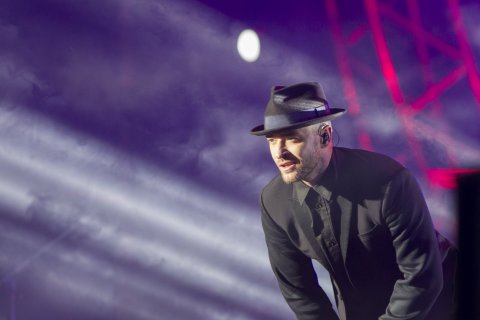
3. Justin Timberlake's feminism is shallow and false.
In the years since "SexyBack," Timberlake has taken lengthy breaks from his music career to focus on acting, including memorable appearances in The Social Network and Inside Llewyn Davis. As it turns out, he also decided to star in a Woody Allen film—2017's Wonder Wheel—at the exact moment Hollywood began to reckon seriously with Allen. Now stars like Kate Winslet and Greta Gerwig are being asked to answer for the decision to work with a filmmaker accused of molestation. And so is Timberlake.
Wonder Wheel came out in December. A month later, Timberlake appeared at the Golden Globes wearing black—and a Time's Up pin—in solidarity with the fight against sexual misconduct in the entertainment industry. Critics charged hypocrisy. And then Rose McGowan "slammed" Timberlake, or "blasted" him, or whatever verb the headlines use these days. "Come on, it is fake," McGowan said of Timberlake's show of support.
Timberlake looked even worse when he was called out on Twitter by Allen's accuser herself: his adopted daughter, Dylan Farrow.
The saying means, for example, you can’t support #TIMESUP and praise sexual predators at the same time. You can’t retain your credibility as an activist (i.e. - retain the cake) and, at the same time, praise a sexual predator (i.e. - eating the cake).
— Dylan Farrow (@RealDylanFarrow) January 23, 2018
The singer could not have anticipated the reverberating impact of the #MeToo movement when he signed on to work with Allen, just as he genuinely did not realize Take Back the Night was the name of an anti-rape organization. It's easy for him to seem out of his depth in these instances. And then there's Timberlake's looming Super Bowl halftime show, which has inevitably pushed memories of 2004's infamous Nipplegate affair right up to the forefront of pop culture conversation. In 2004, Timberlake's duet partner, Janet Jackson, faced serious career repercussions that he did not. In recent weeks, Timberlake has been asked to answer for the 14-year-old incident and admitted that he "stumbled through" the sordid aftermath. He has also been the target of online petitions and a hashtag campaign ("#JusticeforJanet") calling for him not to perform at this year's show.
Related: Justin Timberlake's new album, Man of the Woods, is his most personal album ever
Timberlake ultimately seems to be navigating a very different media landscape than the one that embraced FutureSex/LoveSounds: an internet that frequently treats celebrities as avatars of wokeness or emblems of everything bad. Beyoncé is queen, Obama is dad, and so on and so forth. Nuance is tough—just look at last month's Aziz Ansari episode—and if you're not being crowned, you're being "slammed" or "annihilated" or "blasted."
4. What would Prince think?
This is surely the most minor scandal of Timberlake's long and weird January, but it still bears pointing out that some Prince fans are not pleased with him. At issue is Timberlake's decision to hold a post-Super Bowl listening party at Prince's Paisley Park estate, an event which Prince obviously hasn't signed off on, because Prince is dead. "There's something presumptuous about a white pop star premiering his new album in Prince's home, as though to suggest that the late genius has posthumously bestowed his blessing," Keith Harris of City Pages noted last month. Naturally, a small but vocal segment of Prince's fanbase is outraged, especially considering Prince once had a brief (and jokey) feud with Timberlake.
Oh, and Timberlake's new album? Is it any good? No clue. Timberlake's PR team did not let Newsweek hear the record before release. Let us know if you find out.



